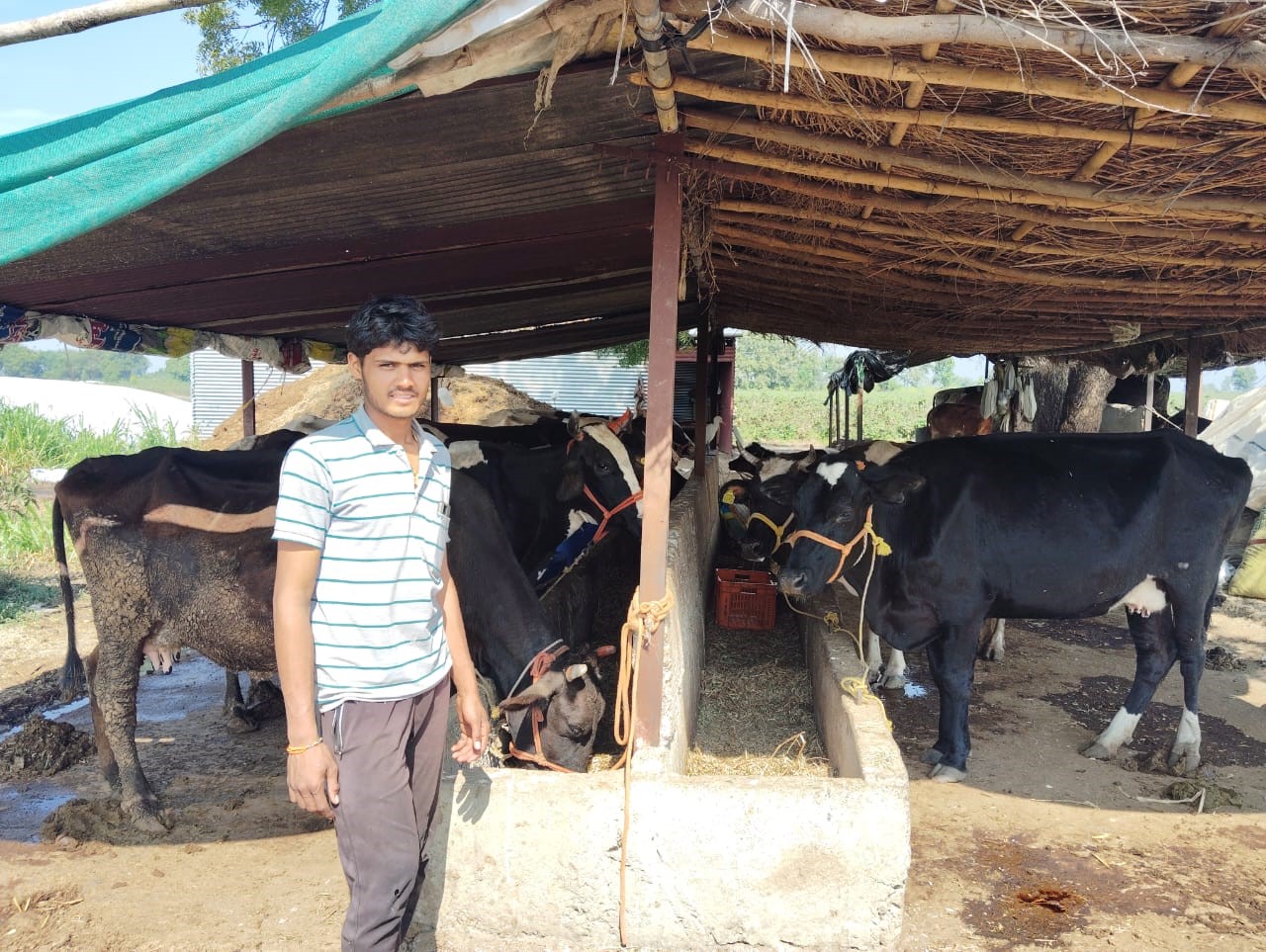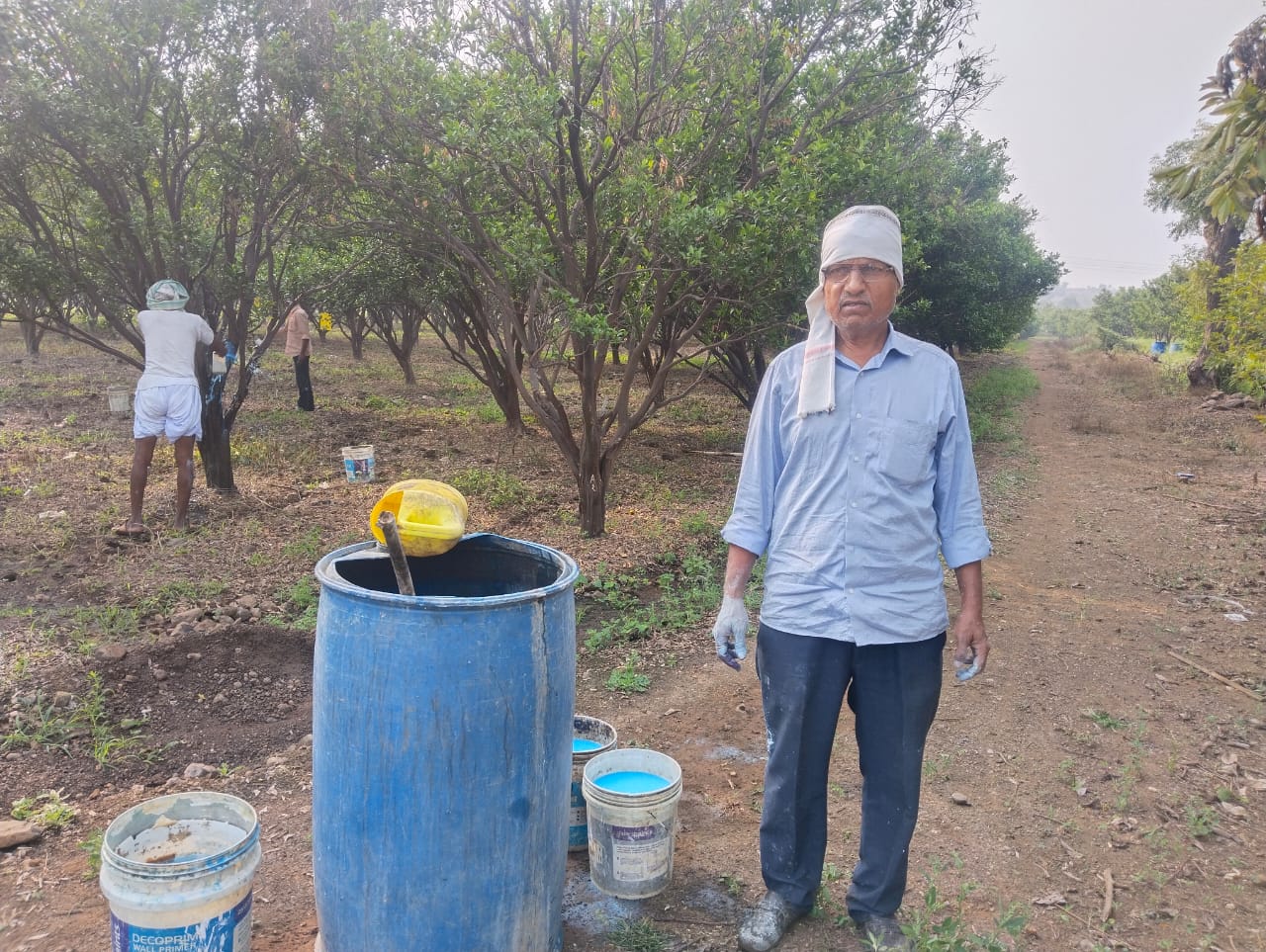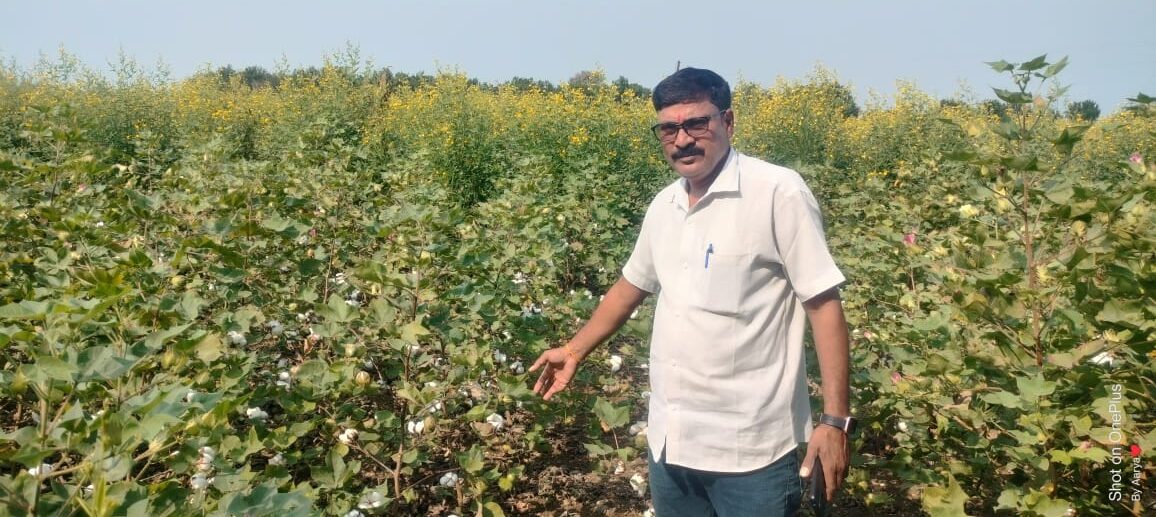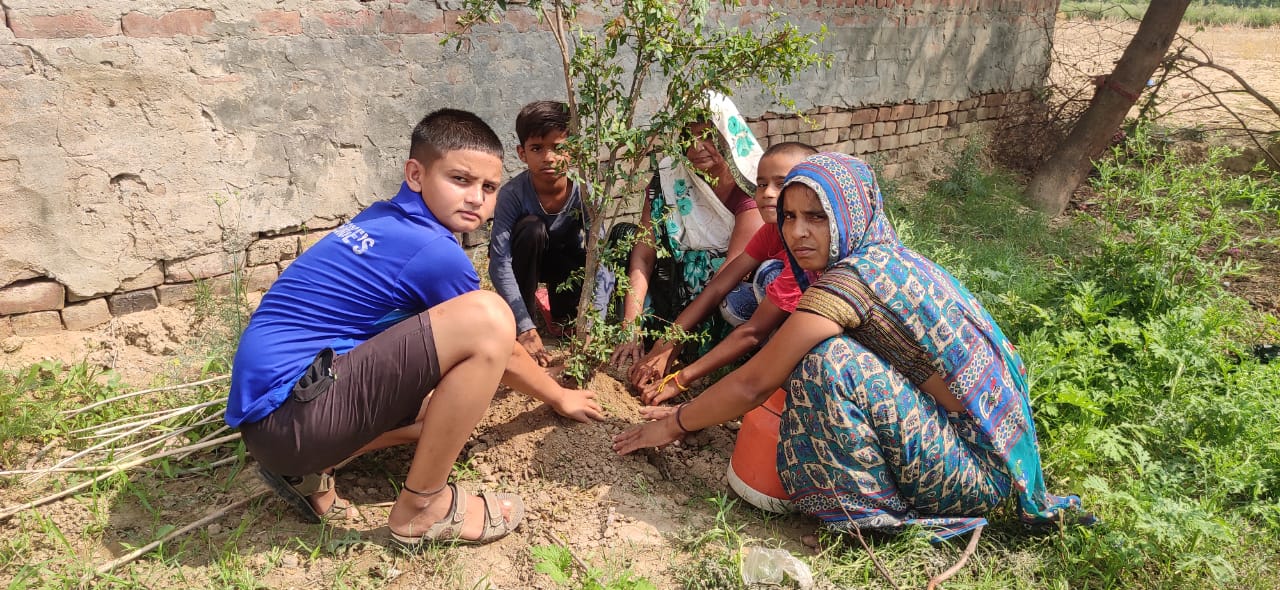Intro: Creating a holistic programme for the smallholder castor farmers
Castor is considered as one of the most remunerative crops in the world with naturally high seed oil content. In India, the drought- and pest-resistant castor crop finds favourable conditions for cultivation in Gujarat. The country is in fact the largest seed producer of castor in the world. Yet, castor farmers in India are often distraught as climate change threatens to disrupt the productivity of this important industrial oilseed. Non-availability of certified seeds along with limited knowledge on fertiliser and pesticide use, scientific planting techniques and post-harvest handling add to their woes.
The rising frequency of droughts, due to climate change and erratic rainfall, is a major factor that impacts the yield and productivity of castor across the country. Moreover, castor a.k.a. Ricinus communis L is dioecious—with male and female flowers in separate racemes. At high temperatures, the female flowers change into male flowers and become sterile or unproductive.
“My traditional castor cultivation was affected by the dual problems of rising temperature and unpredictable rainfall patterns. In addition, practising drilling method for sowing of research variety seed and broadcasting fertilisers, especially doses of DAP and urea, without any soil testing affected the health of my crop as well as my land further,” says Hirabhai Devabhai Zaverbhai Kotadiya from Sundha village in Banaskantha district, Gujarat, India.
The impact of climate change, coupled with lack of structure and organisation in the sector, has led to an array of problems in the region, including non-availability of certified castor seeds and water resources; low productivity and improper post-harvest crop- and residue-handling and other sustainability issues. At the root of many of these problems was inadequate knowledge and limited exposure to scientific farming. Acknowledging the situation, in 2016, Solidaridad decided to expand its Asia-wide interventions in sustainable agriculture to include sustainable castor production in four of the major castor-growing districts in Gujarat, namely Sabarkantha, Banaskantha, Mehsana and Patan.
Route to Recovery
It took no time for Solidaridad to realise that water-use efficiency, soil fertility enhancement and overall good and sustainable agricultural practices were the immediate needs. During the baseline study, groundwater was the major source of water supply for the farms and flooding the most common practice for irrigation. Solidaridad introduced the farmers to furrow and skip furrow irrigation methods and insisted upon timely irrigation of the fields to avoid deficiency or excess. Taking a multi-stakeholder approach, Solidaridad collaborated with global industrial partners and agricultural institutions to create a holistic programme for the smallholder castor farmers. Interestingly, in 2019, the enrolled farmers reported a 25 per cent decrease in water usage for irrigation from that in 2016, following good agricultural practices.
“I was following the traditional methods of sowing. It was my neighbour’s farm land and produce that gave me the confidence to talk to Solidaridad. I too wanted to adopt scientific practices for better yield and quality,” says Patel Prahladbhai Tribhovandas from Amudh village in Mehsana district, Gujarat, India.
Besides training sessions on water usage and efficient irrigation, the farmers were also encouraged for regular soil testing. The soil health cards issued after the test helped farmers understand nutrient requirements and accordingly feed the soil with required quantity of inputs and fertilisers. The entire process helped farmers maintain optimum soil temperature, even during hot summer, and better soil health.
“Under the project, I use the university-recommended certified seeds and the dibbling method for sowing. This allows for judicious seed planting and avoids wastage. Also, the soil test report helps me in applying only the required dosage of fertiliser. Both these practices have reduced my input cost and improved yield and soil health. I also follow the health and safety guidelines, like using PPE kits, and practice farm waste management as suggested by the Solidaridad experts,” adds Hirabhai.
Demonstration Plots
Every year, the programme sets up demo plots in all the districts of intervention for on-farm demonstration of good and sustainable practices. Each of these plots showcases best practices for castor cultivation such as seed sowing, soil maintenance, irrigation and organic nutrient management, like vermicompost or intercropping, and efficient handling of hazardous materials (chemicals) and waste management practices.
The plots demonstrate row-to-row and plant-to-plant methods of cultivation with each castor crop planted at an optimal distance, based on specific seed varieties, for maximum production. The demo plots serve to provide a real-time experience for the farmers as they are introduced to new technologies that are scientific and sustainable in nature. The plots also demonstrate the importance of biodiversity surrounding the farmland—to prevent runoffs involving soil and nutrient erosion and promote pollination—all of which lead to a balanced ecosystem.

Figure: Water usage in demo plots (2020-21)
The graph displays how water-efficient irrigation techniques in the demo plots, which have accurate measurement and control in place, led to a lowering of water consumption by approximately 35 percent.
“The demo plots are intended to introduce new ideas and innovative farming practices that will address the risks of climate change. The plots are also employed to provide practical training to farmers on a first-hand basis that help them gain confidence in adopting better scientific practices,” says Rajesh Bhatia, Senior Programme Manager, Solidaridad.
A Holistic Initiative
“With the sixth assessment IPCC report in 2021 spelling out the imminent climate disaster facing us due to rapid increase in temperatures, sustainability is no more a choice but a mandatory aspect in every operation undertaken. The Sustainable Castor Farming project is a small step in that direction. The key is to meet the rising demand for castor produce with a responsible and sustainable mechanism that benefits consumers, producers and the environment,” adds Rajesh Bhatia.
Six years of the initiative have garnered impressive results and provided the impetus for farmers, corporate players, and the government to invest in the promotion and development of sustainable castor. And that has been the guiding force behind the sustainable castor farming programme at Solidaridad Asia.








